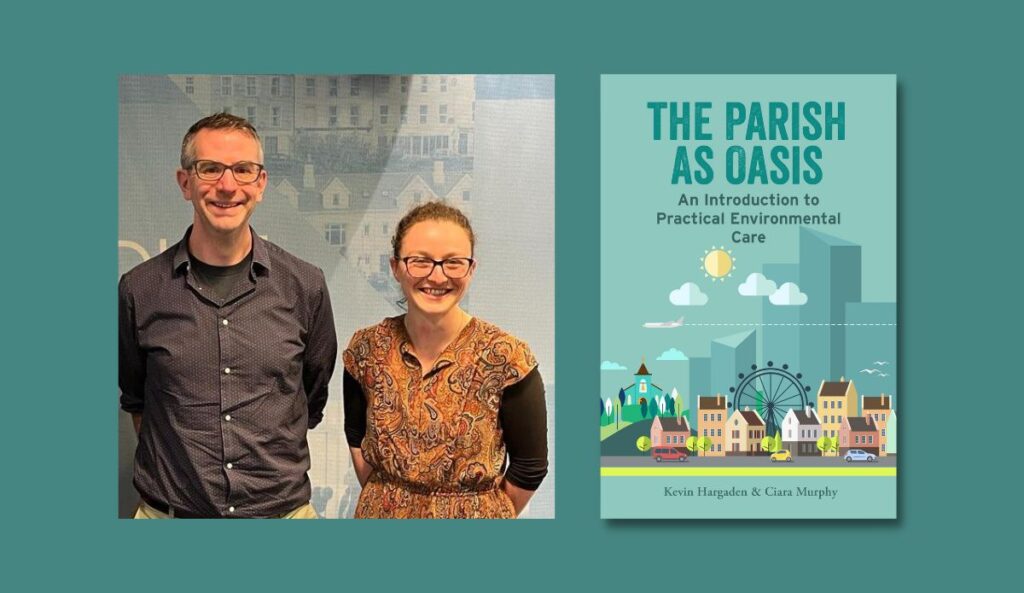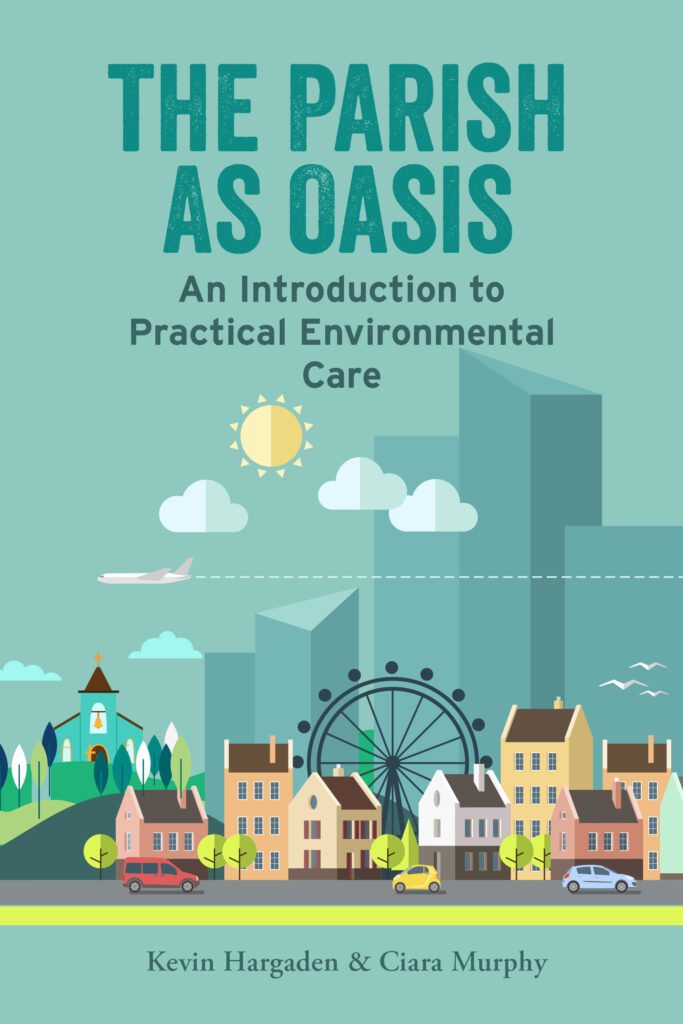
The Parish as Oasis|Kevin Hargaden and Ciara Murphy|Messenger Publications|€14.95
An extract from The Parish as Oasis, by Kevin Hargaden and Ciara Murphy (Messenger Publications)
Poisons You Don’t Even Notice
One of the more intriguing theories we have encountered in the JCFJ’s work on criminal justice is the idea that the rise in crime in the twentieth century was caused by mass lead poisoning.
At first glance, this seems like a crazy idea, something from a Batman comic-book. However, the theorists who propose this do not imagine there were any malicious protagonists involved, an arch-villain behind it all. Instead, they argue that engineers developed technological innovations that were deployed before they were fully understood.
Lead particles in motor fuel and lead lining in pipes—both of which were intended to increase the longevity of the devices in question, which is a kind of sustainability measure—may have been poisoning entire populations.
The regions where this use of lead was less regulated, meaning that people were more exposed to it, were those regions where violent crime was the highest. Cities with lead pipes had almost 25 per cent more murders than cities without them. When children who were regularly truant from school were interviewed, a clear statistical connection emerged between juvenile delinquency and lead exposure. Then, when unleaded fuels were introduced by law, crime rates across the Western world plummeted.
It is important to emphasise that this is a theory and not proven fact. We remain unconvinced by the details. The studies that connect criminal behaviour to lead exposure are illuminating in how they show us a connection between the pollution levels in our environment and our individual and collective well-being.
This is one more chapter in a story that we have been telling since the beginning of the industrial era. Without there being any ‘baddies’ out there trying to cause harm, our over-eager adoption of technological solutions that promise to improve our life can do the opposite.
The obvious example is the widespread adoption of tobacco usage in the nineteenth century, which turned out to be addictive and lethal, and to harm even those who never even engaged in the practice. In our own day, there is growing evidence that the BPA elements in much of our plastic might have long-term consequences for our health, and serious questions are being raised about the perfluorochemicals (PFCs) used in much of our ‘outdoor’ clothing, like Teflon and Goretex.
We are not anti-technology, and we still have reusable plastic bottles and waterproof raincoats. We are not scaremongering. However, we propose that we should spend a little more time reflecting on the toxic elements we tolerate in our own lives for the promise of a life of ease.
Most homes have a cupboard under the kitchen sink full of various liquids and foams needed to keep the house clean. It is instructive that if you share your house with toddlers, you need to put a safety lock on this cupboard because the vividly coloured cleaning materials might be mistaken by a child for something edible and that would be devastating. Looking through the warning labels on most people’s cleaning cupboard is like reading a thesaurus entry on ‘Beware’.
There are situations where we do need to use these powerful cleaning agents, but there are surely many more where the traditional tools—vinegar and lemon and bicarbonate of soda in various combinations—could work just as well.
One of the attractions of the off-the-shelf mass-produced materials is that they have a pleasant fragrance that we associate with cleanliness. But if you add a few drops of essential oil—lavender or peppermint are widely available—then you will have your own bespoke cleaning materials that are authentically clean and come with a pleasant scent to boot.
It is one thing to reduce the chemicals you use in your home, but can that approach be replicated in a communal setting, like a community house or a parish? The Jesuit Spirituality Centre in north Dublin, Manresa, made the commitment to shift to less toxic cleaning materials (EcoKem) a few years ago. The initial cost difference was easily absorbed in the budget and the cleaning effectiveness was not reduced.
Piaras Jackson SJ, who directs the centre, says they have no regrets. “On making changes within the Spirituality Centre, the guiding principle is usually to ask ourselves how can we do that better? How do we do something that we can maintain?”
As well as being concerned about the toxicity of the cleaning products, the amount of packaging and the emissions associated with delivery were a huge factor in the decision to change supplier. The (cleaning) solution to all this was an eco-friendly cleaning concentrate that can be diluted on site and dispensed from reusable spray bottles.

For Peat’s Sake
Peat, available in every garden centre and used in most nurseries, is so commonly deployed in gardening that the word is regularly used synonymously with compost. Peat, in fact, is not compost, but is a product mined from the carbon-rich and biodiverse boglands across Ireland.
While this is a popular growing medium, its indiscriminate use in people’s gardens is not without issues. Most gardeners labour to generate a beautiful environment, somewhere they can appreciate God’s wonder. What gardeners don’t see is the destruction left behind when purchasing their preferred compost—peatland ecosystems cleared of vegetation are strip-mined, obliterating all biodiversity as well as releasing tonnes of carbon into the atmosphere.
This is not the fault of the gardener—these products are so ubiquitous that it is actually difficult to avoid them. The good news is that alternatives do exist which can actually be better for your plants than the inert substance we usually apply.
Producing your own compost in your garden using garden clippings and kitchen waste can be as simple as a heap in the corner, or, for the serious gardener, an efficient system that turns waste material into a valuable resource.
An insulated composting drum makes composting bread, meat and dairy possible as the higher temperatures and sealed containers means faster decomposition with no fear of attracting mice. If space is a concern, a wormery can be an excellent choice—composting worms can munch their way through everything apart from meat and dairy.
If producing your own is not an option, peat-free compost is available in more and more gardening centres. The discerning consumer should seek out ‘peat-free’ labelling, as misleading packaging can easily lead one astray.
Gardening is a celebration of God’s creation. Making the small switch to peat-free compost can ensure that you are not only celebrating your own beautiful patch of earth but also the incredible and biodiverse boglands dotted across Ireland.











